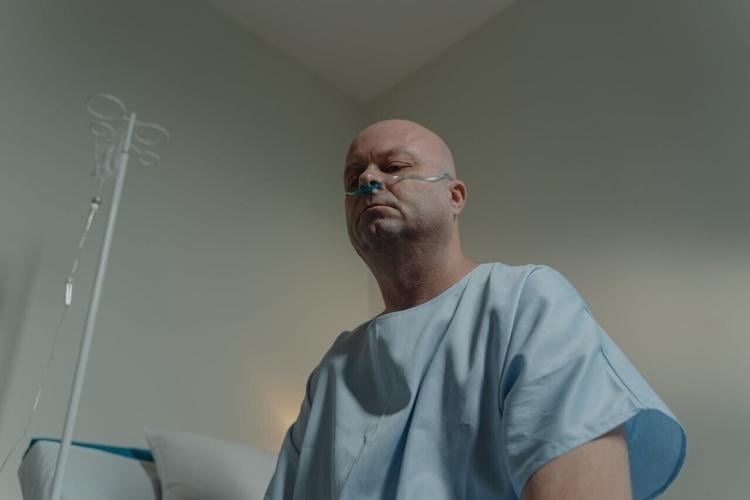
(Photo by Tima Miroshnichenko via Pexels)
By Stephen Beech
Prostate cancer treatment could be "supercharged" by a new way of weakening malignant cells, say scientists.
A new "vulnerability" in prostate cancer cells that could help improve treatment has been discovered by an international team of researchers.
Prostate cancer is the second most common cancer in men worldwide. There are around 56,000 diagnoses and 12,000 deaths each year just in the UK.
But now scientists have found that two enzymes - PDIA1 and PDIA5 - play a "crucial" role in helping prostate cancer cells grow, survive, and resist treatment.
They explained that the enzymes act as "molecular bodyguards" for the androgen receptor (AR), a protein that fuels prostate cancer.
When PDIA1 and PDIA5 are blocked, the AR becomes unstable and breaks down, leading to the death of the cancer cells and tumour shrinkage in both lab-grown cells and animal models.

Lead author Professor Jianling Xie. (Flinders University via SWNS)
The researchers also found that combining drugs that block PDIA1 and PDIA5 with enzalutamide - a widely used prostate cancer medication - significantly boosted the treatment’s effectiveness.
Although treatments such as hormone therapy and AR-targeting drugs have helped many prostate cancer patients, resistance to the therapies is a major challenge.
The new discovery could help overcome that hurdle and improve the survival chances of men with advanced prostate cancer, say scientists.
Study senior author Professor Luke Selth, of Flinders University in Australia, said: “We’ve discovered a previously unknown mechanism that prostate cancer cells use to protect the androgen receptor, which is a key driver of the disease.
“By targeting these enzymes, we can destabilise the AR and make tumours more vulnerable to existing therapies like enzalutamide.”
Lead author Professor Jianling Xie, who started the research whilst at Flinders University, says that the combination therapy worked well in patient-derived tumour samples and in mice, suggesting "strong potential" for future clinical trials.
Dr Xie, now at South China University of Technology, said: “This is an exciting step forward.

=Professor Luke Selth, Flinders Health and Medical Research Institute (FHMRI) and College of Medicine and Public Health, Flinders University. (Flinders University via SWNS)
“Our findings show that PDIA1 and PDIA5 are not just helpers of cancer growth but they’re also promising targets for new treatments that could work alongside existing drugs.”
The study, published in the journal Proceedings of the National Academy of Sciences (PNAS), also found that PDIA1 and PDIA5 also help cancer cells manage stress and maintain energy production.
Blocking them causes damage to the cells’ mitochondria - the parts of the cell that generate energy - and leads to oxidative stress, which further weakens the cancer.
Dr Xie said: “This dual impact of hitting both the AR and the cancer’s energy supply makes these enzymes especially attractive targets."
He added: “It’s like cutting off both the fuel and the engine at the same time.”
Selth cautioned that while current drugs that block PDIA1 and PDIA5 show promise, more work is needed to make them safe and effective for use in patients.
He said some of the existing compounds may affect healthy cells, so future research will focus on developing safer inhibitors.























(0) comments
Welcome to the discussion.
Log In
Keep it Clean. Please avoid obscene, vulgar, lewd, racist or sexually-oriented language.
PLEASE TURN OFF YOUR CAPS LOCK.
Don't Threaten. Threats of harming another person will not be tolerated.
Be Truthful. Don't knowingly lie about anyone or anything.
Be Nice. No racism, sexism or any sort of -ism that is degrading to another person.
Be Proactive. Use the 'Report' link on each comment to let us know of abusive posts.
Share with Us. We'd love to hear eyewitness accounts, the history behind an article.